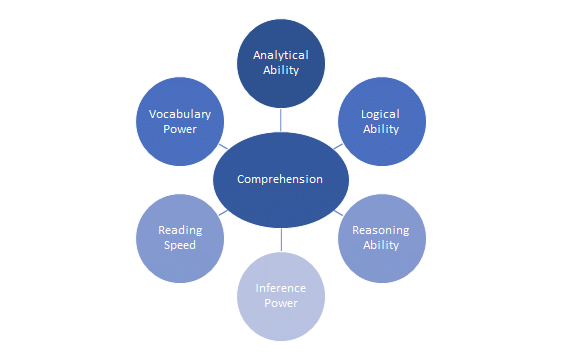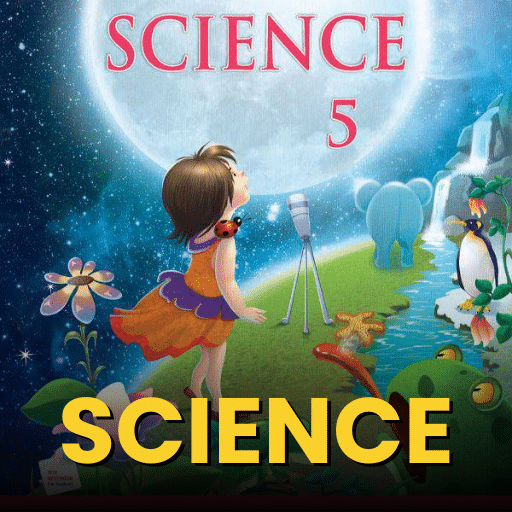Introduction: Reading Comprehension | General Aptitude for GATE - Mechanical Engineering PDF Download
Embarking on your journey to conquer the Common Admission Test (CAT) in 2025, you'll find that the Verbal Ability and Reading Comprehension (VARC) section plays a pivotal role in securing a top percentile. Many students find RC challenging because it requires more than just reading—it tests your understanding, speed, and accuracy. You need to grasp complex ideas, identify key points, and answer questions correctly—all under time pressure!
Reading Comprehension (RC) forms one of the most critical and high-weightage parts of the CAT question paper. Strong RC skills can significantly impact your VARC score, making it essential to develop both speed and accuracy in this section.
Before diving into preparation, let’s examine the latest pattern based on CAT 2024 section-wise analysis:
Total Questions in VARC: 24
Total Marks Allotted: 66
Number of RC Passages: 4
Number of RC-Based Questions: 16 out of 24

RC contributes more than half of the VARC section, making it a crucial area to focus on. Mastering comprehension skills, critical reasoning, and elimination techniques is key to maximizing your score.
Check out what toppers had to say about the RC section's importance:
"As someone who isn’t very strong at vocabulary, I had decided to focus on other aspects of the VARC section. I began with the RC portion considering its huge weightage and focused on getting accuracy first by practicing without any time limit. To improve my reading speed, I decided to read random online articles about things that are not my direct area of interest like botany, psychology etc. I couldn’t get my accuracy high enough in the VA section and thus I decided to focus most of my exam time on the RCs."
-Yogesh Taneja, CAT 100%ile, IIM Calcutta
In the next sections, we will explore strategies, techniques, and best practices to tackle RC questions effectively.
What is Reading Comprehension?
- At its most basic, reading comprehension is the ability to understand what you are reading.
- However, reading comprehension is more than having a basic understanding of what you have read which is useful for reading directions, signs, and labels—but less valuable when reading denser work like books, articles, and emails.

- Rather, reading comprehension is an in-depth understanding of what you have read, using text and subtext to fully understand the text's meaning and emotion as a whole.
Why is Reading Comprehension Important?
- RC passages in CAT are not just about checking your reading skills. They test:
- Understanding of Complex Ideas – Can you quickly grasp the main message of a passage?
- Logical Thinking – Can you analyze arguments and find hidden meanings?
- Time Management – Can you read and answer questions within a limited time?
- As seen above, about 70% of questions in the VARC section are from Reading Comprehension. Hence, developing the appropriate level of skills for tackling the reading comprehension section is something that you cannot afford to ignore during the CAT exam preparation phase.
- Needless to say, the correlation between good Reading Ability and good Reading Comprehension Ability is very high.
- Hence, to develop your ability to solve reading comprehension questions, your first focus should be to take your reading ability up from its current level (whatever that might be).
Things that Should be Avoided
These are the problems you would face in RCs & problems to be avoided:
Problem 1: Unable to identify the main idea – Lack of focused reading
➢ Why is it so?
Today's generation is notorious for having a concise attention span. Members of the digital generation are very impatient. They want everything fast, and you might skip identifying the Main Idea.
EduRev's Tips
Keep watch over your thought as your thought diverts from reading, keep it back again and again for reading. After a period of time, it will become a habit.
Try looking at this example:
Example: Try finding the Main Idea of the passage - 'They have a dismal track record when it comes to predicting economic growth, exchange rates or the direction of the stock market. So, you might have expected economists to despair at the thought of forecasting sports results. Not at all. Efforts to work out the number of medals which countries are likely to get in the Athens Olympics, which start on August 13th, are well underway.
Main Idea: The topic is forecasting sports results and the last sentence is the idea sentence.
Problem 2: Being uninterested in the content of the reading material
➢ Why is it so?
Lack of motivation leads to poor reading skills. This will affect your overall understanding of the passage because of your Lack of understanding of the language.
EduRev's Tip
Keep motivating yourself to help you read the subject you would not be interested.
 |
Download the notes
Introduction: Reading Comprehension
|
Download as PDF |
Problem 3: Finding the reading material to be too tough & meeting unfamiliar words
➢ Why is it so?
- While reading a piece of text, we tend to move back, cross-check and re-read the things we have already read.
- Generally, this happens because of a lack of interest, complex vocabulary, or poor reader retention. This is known as regression or skips back.
- The habit of regression has to be minimized if not eliminated. Regression is a big-time killer. It breaks the flow of thought and leads to poor concentration, which leads to more regressions, which further lowers the reading speed.
EduRev's Tip
Try to connect the difficult word with an overall idea of passage (context). Over a period of time (3-4 months), your understanding of vocabulary will enhance even without using a dictionary.
Consider the following examples. See whether you can define the words in italics and underline in the following two sentences:
Example: Consider the line 'Judge John Hass imposed a publication ban on Philip Sartre's testimony, former head of Amans and Mather, an advertising agency, as he is to stand trial on fraud charges.'
► Try to think of a word that nears the meaning of 'Testimony' in the context of the above line.
Sol: Here, the word testimony means statement.
What could be nearest meaning to the word 'Charismatic' in the above line?
Problem 4: Lacking an understanding of the overall structure and organization of the passage
➢ Why is it so?
- Lack of mental organizational skills
Try this excerpt from a passage of CAT 2017 to understand this aspect better!
Example: "Progress is being made, albeit slowly. Democracy has brought increased (and better directed) social spending. Economic growth has returned after several years of stagnation. New political forces and the alternation of power are making politics more representative."
Explanation: The underlined part of the paragraph above has the author using three examples to explain the point of how progress is being made.
Here's one more!
Example: Setting up a business abroad has always been risky not just financially. To create a colony of 90,000 white settlers that, in the late 17th century, earned enormous profits from growing tobacco in Virginia, required the immigration of around 116,000 people. The chaps who sailed for India a century later had to endure even worse. “The variety of means by which a man could be carried off was quite bewildering,” observes a recent book on the East India Company.” Malaria, typhoid or enteric fever, cholera, dysentery and smallpox were the most common diseases, and the bites of scorpions and mad dogs were frequently lethal.”
Explanation: The underlined part of the paragraph above has the author using two examples to explain the point that setting up a business abroad has always been risky.
EduRev's Tip
Passage structure = General words → to specific words → to more depth. Try to tabulate or organize or quick imagination (create a rough image) of the passage keywords.
Problem 5: Difficulty in recalling facts and information to draw opinions & inferences
Let us first understand what facts and opinions are. We often come across situations where a person gets emotional about an issue and starts to speak and give his/her opinions on the basis of emotions, wherein he/she is expected to speak objectively. Especially in informal situations, people want to hear facts rather than emotional opinions.
➢ Why is it so?
Lack of curiosity to understand the passage. As a reader, both facts and opinions are crucial for you. All good readers have the ability to differentiate between fact and opinion. Knowing the difference is important in evaluating what is read because most of what we come across as readers is a mixture of fact and opinion.
EduRev's Tip
A handy way to identify opinions is that normally, opinions contain a set of ‘value’ words—words which show judgment. You should keep looking for such 'value' words.
Example: Statement - 'Productivity growth is probably the single most important indicator of an economy’s health: it drives real income, inflation, interest rates, profits and share prices'.
Inference: There are several indicators of an economy’s health—out of which productivity growth is one of the most important.
Key phrase - 'probably the single most important indicator.'
Try this one as well!
Example: Astrologers habitually prone to goof-ups now have an excuse for why their predictions have been going haywire: the emergence of newer and newer planets that have caused their calculations to go awry. For the international team of astronomers who recently discovered eight new planets, the new arrivals are, however, a cause for excitement. Indeed, even as the rest of the world continues to be consumed by a morbid passion for shiny new war machines, deadly chemicals and sinister war tactics, astronomers have been doggedly searching the heavens for more heavenly bodies in the belief that the search will take us closer to a more exalted goal that of knowing the truth about us and the universe. “Reality is much bigger than it seems... the part we call the universe is the merest tip of the iceberg,” one scientist remarked. How true. In the beginning, sceptics wouldn’t accept that the earth actually moves, let alone that it revolves around the sun, because of an unshaken belief that the earth was the centre of the universe. We’ve come a long way. Today, scientists have spotted nearly 80 extra-solar planets using sophisticated instruments.
Inferences: Astrologers make their predictions based on their calculations of known planetary positions.
- Newer Planets are always discovered.
- The author is against war and spending on war.
- The author has a positive disposition toward scientific discoveries in general.
- The instruments used by astronomers today are much more sophisticated than what was used in the past. Astrologers have a little scientific basis for their predictions.
► As you can experience in the paragraph above, and indeed in full-length passages, being able to draw a series of correct inferences creates a kind of a ‘net of understanding’, which runs parallel to and below the explicit understanding of the passage. The denser this ‘net of understanding’, the better your comprehension of the passage and the author’s intention.
► As you continue to read a passage, the creation of this parallel net of understanding helps you connect better to the author’s idea structure as well as to the probable future direction the author is likely to take in the remainder of the passage.
|
194 videos|168 docs|152 tests
|
FAQs on Introduction: Reading Comprehension - General Aptitude for GATE - Mechanical Engineering
| 1. What are the key components of reading comprehension? |  |
| 2. How can I improve my reading comprehension skills? |  |
| 3. What are common obstacles to reading comprehension? |  |
| 4. Why is reading comprehension important for academic success? |  |
| 5. How does reading comprehension affect critical thinking? |  |






























